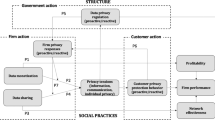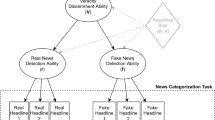Abstract
As use of the Internet has increased, many issues of trust have arisen. Users wonder: will my privacy be protected if I provide information to this Internet vendor? Will my credit card remain secure? Should I trust that this party will deliver the goods? Will the goods be as described? These questions are not merely academic. A recent Boston Consulting Group study revealed that one out of ten consumers have ordered and paid for items online that never were delivered (Williams, 2001). This year consumers filed around 11,000 complaints with the Federal Trade Commission alleging auction fraud, a figure up from the 107 lodged in 1997. It is no wonder that people are increasingly worried about whom to trust in online interactions. This paper explores the conditions under which online trust thrives and looks at examples of best and worst corporate practices. Online trust issues arise in a wide array of forums – chat rooms, news postings, e-catalogues, and retail transactions, to name a few. This paper focuses primarily on the online retail market, but the analysis applies to informational and entertainment sites as well.
Similar content being viewed by others
References
Alpern, K. D.: 1997, ‘What Do We Want Trust to Be? Some Distinctions of Trust’, Business and Professional Ethics Journal 16(1–3), 29–46.
Arendt, H.: 1958, The Human Condition (University of Chicago Press, Chicago, IL).
Aristotle (Trans.): 1941, ‘Nicomachean Ethics’, in R. McKeon (ed.), The Basic Works of Aristotle (Random House, New York), pp. 935–1112.
Baier, A.: 1994, ‘Trust and Antitrust’, in A. Baier (ed.), Moral Prejudices (Harvard University Press, Cambridge, MA), pp. 95–129.
Bannon, L.: 2001, ‘Who, What, When, Where-and Y’, The Wall Street Journal (September 24), R8–9.
Barber, B.: 1983, The Logic and Limits of Trust (Rutgers University Press, New Brunswick, NJ).
BBB: 2001, ‘U.S., European Business Groups Work to Establish Online Trust’ (24 April), http://usinfo.state.gov/topical/global/ecom/01042406.htm, pp. 1–3.
BBB: ‘Code on Online Business Practices’, http://www.bbbonline.com/code/code.asp.
Berg, T. C. and G. I. Kalish.: 1997, ‘Trust and Ethics in Employee-owned Companies’, Business and Professional Ethics Journal 16(1–3), 211–223.
BizRate.com at www.BizRate.com.
Borzo, J.: 2001, ‘Out of Order?’, The Wall Street Journal (September 24), R13, R15.
Browne, M. N. and L. Blank: 1997, ‘The Contrast between Friendship and Business-consumer Relationships: Trust is an Earned Attribute’, Business and Professional Ethics Journal 16(1–3), 155–170.
Dasgupta, P.: 1988, ‘Trust as a Commodity’, in D. G. Gambetta (ed.), Trust (Blackwell, Oxford), pp. 49–72.
Farquharson, L.: 2001, ‘The Web @ Work’, The Wall Street Journal Online (29 October), http://interactive.wsj.com/archive/retrieve.cgi?id= SB1004305583968965400.djm&template=...
Flores, F. and R. Solomon: 1997, ‘Rethinking Trust’, Business and Professional Ethics Journal 16(13), 47–76.
Foorman, J. L.: 1997, ‘Trust and Contracts: Are They Mutually Exclusive?’, Business and Professional Ethics Journal 16(1–3), 195–204.
Fukuyama, F.: 1995, Trust (Macmillan, New York).
Gambetta, D.: 1998, ‘Can We Trust in Trust?’, in D. Gambetta (ed.), Trust: Making and Breaking Cooperative Relations (Blackwell, Oxford), pp. 213–237.
trust/safe?market/ trustwatch.asp.
Gertzen, J.: 2000, ‘Trust Still the Foundation of Success’, Milwaukee Journal Sentinel Online (20 October), wysiwyg://91/http://www.jsonline.com /bym/news/oct00/newecon21102000.asp.
Govier, T.: 1992, ‘Distrust as a Practical Problem’, Journal of Social Philosophy 23(1), 52–63.
Horsburgh, H. J. N.: 1960, ‘The Ethics of Trust’, Philosophical Quarterly (10), 343–354.
Jason, L.: 2001, ‘On Course’, The Wall Street Journal (September 24), R14.
Kant, I. (Trans.): 1930, ‘Lecture on Friendship’, in M. Pakaluk (ed.), Other Selves (Hackett, Indianapolis), pp. 210–217.
Kelsey, D.: 2000, ‘Cops Say EBay Auction Fraud is Growing’, Newsbytes (March 31).
Koehn, D.: 1992, ‘Toward an Ethic of Exchange’, Business Ethics Quarterly (2) ( July), 341–356.
Koehn, D.: 1994, The Ground of Professional Ethics (Routledge, London).
Koehn, D.: 1997, ‘Should We Trust in Trust?’, American Business Law Journal 34(2), 183–203.
Koehn, D.: 1998, ‘Can and Should Businesses be Friends with Each Other and with their Stakeholders?’, Journal of Business Ethics 17, 1755–1763.
Koller, M.: 2001, ‘Portals, ISPs May Win Over Bank Customers’, Internet Week (20 August), http://www.internetweek.com/story/INW200108 20S0007.
Kollock, P.: 1999, ‘The Production of Trust in Online Markets’, in E. J. Lawler, M. Macy, S. Thyne and H. A. Walker (eds.), Advances in Group Processes ( JAI Press, CT).
Lewicki, R. J. and M. A. Stevenson: 1997, ‘Trust Development in Negotiation: Proposed Actions and a Research Agenda’, Business and Professional Ethics Journal 16(1–3), 99–132.
Luening, E.: 2001, ‘Net Users Put Online Trust in Familiar Hands’, CNET News (13 August), http://news.cnet.com/news/0–1007–202–6861134.html.
Luhman, N.: 1979, in T. Burns and G. Poggi (eds.), Trust and Power (John Wiley and Sons, New York), pp. 4 and 39.
MacDonald, C.: 1997, ‘Trust in the Marketplace: An Exploratory Computer Simulation’, Business Ethics Journal 16(1–3), 225–238.
Maisline, S. A. ‘Earning Online Trust’, wysiwyg: //72/http://taxonomist.tripod.com/articles/trust. html.
Mason, R. O., M. J. Culnan, S. Ang and F. Mason: 2000, ‘Privacy in the Age of the Internet’, in G. W. Dickson and G. DeSanctis (ed.), Managing Information Technology in the 21st Century (Prentice Hall, New York).
McAfee, ‘Privacy Policy’, wysiwyg://133/http: //www.mcafee.com/copyright/privacy.aspoemid= 1871–92.
Nelson, M. G.: 2000, ‘A New Level of Online Trust’, Information Week Online (5 June), http://www. informationweek.com/shared/pr...rticle=infoweek/ 789/payments.htm&pub=iwk.
Spagat, E.: 2001, ‘Walking the Internet Beat’, The Wall Street Journal (September 24), R16–17.
Totty, M.: 2001, ‘Boffo Web Sites, Boffo Box Office?’, The Wall Street Journal (September 24), R4.
Totty, M.: 2001, ‘Making the Sale’, The Wall Street Journal (September 24), R6.
Totty, M.: 2001, ‘Listen Up, Retailers’, The Wall Street Journal (September 24), R9, R12.
Vickery, L.: 2001, ‘No More Free Lunch... Please?’, The Wall Street Journal (September 24), R13, R15.
Williams, M.: 2001, ‘A Living Dream’, The Wall Street Journal (September 24), R12.
Wolverton, T.: 2000, ‘ebay, Authorities Probe Fraud Allegations’, CNET News (March 27).




